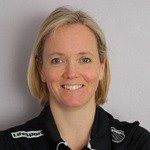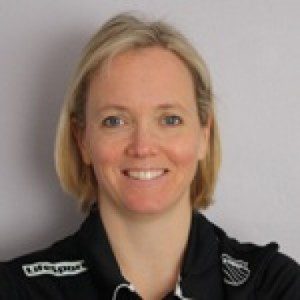4 Training Phases For Your Best 2014

By LifeSport coach Jessica Adam
It’s a New Year and many triathletes start to think about really getting serious and kicking their training up a notch. If you haven’t already done so you should really lay out your season’s plan. It’s not too late to start now but optimally you would have done this before the New Year. Many athletes don’t realize the value and potential improvements there are to be had by implementing a well planned, year round schedule. This is where a professional coach can really assist you so that you optimize all windows of opportunity. If you don’t have a coach, now is a great time to hire one to help you plan your season, aid you in racing to your potential, and then get ahead of the game for next season with a strategic off season plan. Below is a breakdown of how a coach can guide you through a full year of training.
1. Pre-season (General Preparation Phase). This phase starts approximately 2-3 months before your first goal race. It may include a few training races to get you primed which is something you and your coach can work out together early. A coach will help you pick these events so that they give you perfect lead up and recovery time to optimize the training effect you want to be prepared for your goal events. A coach will also guide you through the appropriate training efforts you will need on a weekly basis according to the types of races/distances you are planning. For example, the duration and intensity of endurance and pace work intervals, how many recovery workouts, and how much to build each week to name just a few things to consider during this period. Identifying early season heart rate zones keeps you on track for appropriate training this time of year.
2. Peak/race season (Specific Preparation/Competition Phase). The list is endless here when it comes to how much a coach can benefit your training during race season. The majority of athletes have the most questions at this time. There a lot to consider physically, as training intensity gradually increases, and the athlete makes sure to peak equally in swim, bike and run. This is also where many other decisions have to be made ranging from equipment to nutrition to strategy and so on. These things should be considered all year round but become fine tuned during this phase. Having a professional coach help guide you through your race season is not only increasing your potential for a good result but can also take the stress out of making many of these decisions on your own which in turn will help you to race better.
3. Active Recovery. After a full season of racing it is important to plan a recovery phase. Maybe some complete time off is necessary but this is again where a coach can guide you. How much is too much? What if you have an injury incurred during the season that you want to get recovered? What kind of recovery is best given the type of season you had be it long or short course racing? It seems like a simple phase but you can still develop and enhance your fitness by planning this time with a purpose, and doing some specific activities that keep you in touch with your hard earned fitness while allowing you to fully recharge.
4. Winter Skill Development and Single Sport Emphasis. There are so many athletes that miss the boat here for many reasons. Maybe a lack of motivation, inclement weather for training, and/or the recovery phase goes on for too long and it’s tough to get going again. However, this period can be quite a long stretch and provides a great opportunity to refine and sharpen some skills to benefit your performance, or keying for winter run event or swim meet to improve your level in a single sport. You and your coach can go over the past season, looking at where improvements can be made and plan for next season accordingly. The type of training during this phase can be just as specific as any other time of year when you are working on a plan and especially if you know the races you want to do the next year.
The bottom line here is if you want to race to your full potential, improve, and set goals for yourself you need to consider the full year as a training cycle. With the assistance of a professional coach, this year can be planned out with ways to help you improve all three triathlon disciplines. The plan for these improvements can fall during different phases by implementing blocks that focus on one sport at a time. These decisions are the reason hiring a coach now will take the guesswork out of your training and elevate your program to the next level.
LifeSport triathlon coach Jessica Adam has been a coach in Victoria, Vancouver and now resides in the Toronto area. She loves to share her years of experience with beginner triathletes and also experienced triathletes that are trying new distances like ½ IM or IM for the first time. She coaches athletes online all across the country.
If you are interested in working with Jess, write Jess@LifeSportCoaching.com

